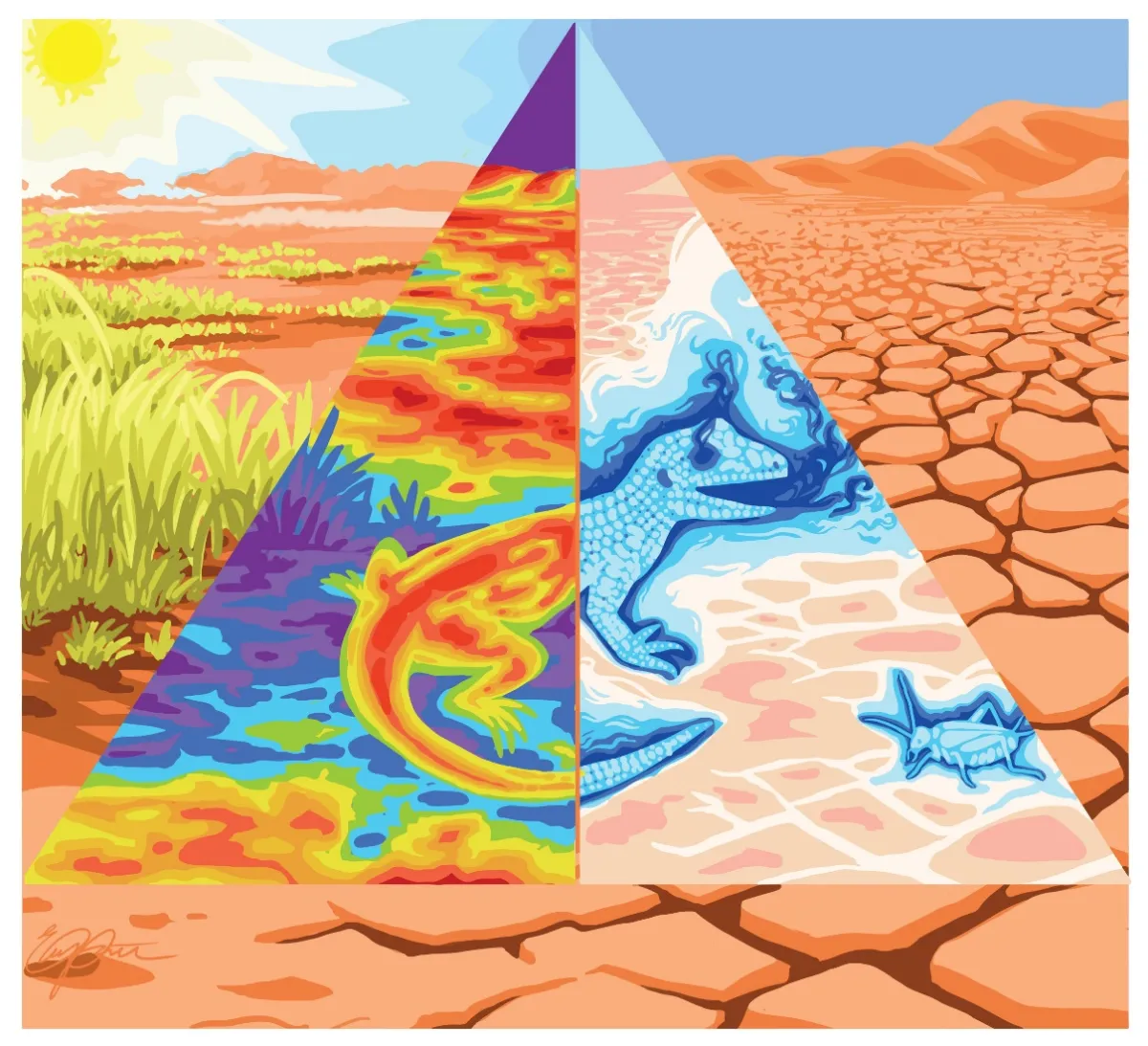Mechanistic niche modelling using NichemapR
Understanding how climate constrains the distribution and abundance of organisms – an approach using NichemapR
Speakers
Event series
Content navigation
RegisterDescription

Anthropogenic warming is a global phenomenon that is threatening biodiversity and ecosystem function. The ability of organisms to rapidly respond to novel thermal environments has shown to have fitness and evolutionary consequences. Sophisticated modeling approaches have allowed scientists to identify species at risk to rapid warming associated with climate change and provided mechanisms that may contribute to local or global declines of species.
Generally, the aims of such approaches are to use a prior understanding of an organism’s niche, the environmental space where an organism can survive, to make predictions where in space those niches can occur and then use these data to understand how climate can constrain the distribution or abundance of organisms. Mechanistic niche models have become a powerful tool where researchers use the computation of heat, water, and nutritional budgets of organisms as a function of their environments. These data can then be used to calculate functional traits of an organism (growth, reproduction, survivorship, and development), which can then be mapped on the landscape to predict where constraints occur in relation to where the species is distributed.
In the past, estimating mechanistic niche models have been difficult for ecologists to use because of computing limitations and the use of complex computing languages, such as Fortran. The NicheMapR package uses the R environment to compute fundamental physical and chemical constraints on living things. One main aspect of this package is to use functional traits of an organism to predict how these traits can be influenced by the organism’s microenvironment through time and allows users to estimate these traits may influence where it can occur (microclimate or distribution).
The aim of this workshop is to provide a 1-day intensive training course to cover the theory and application of mechanistic models within NicheMapR.
Target audience
Students, academics, and managers who are interested in modeling how physiological constraints, such as temperature, may influence the physiology, microhabitat, and distribution of organisms. This will be accomplished by providing a general overview of models within the NicheMapR package, with scripts and walk-through examples.
Prior to workshop NicheMapR will be needed to be downloaded to your laptop:
- Instructions on installing NicheMapR: https://mrke.github.io/getting_started/ (you may need to install a number of other packages also)
- Version to install: https://github.com/mrke/NicheMapR/releases/tag/3.2.1
Workshop outline
- Brief introduction of mechanistic models used in ecology with an overview of the models within NicheMapR package:
- Introduce theory behind the different types of models within NicheMapR: microclimate models, ectotherm models, endotherm models, and dynamic energy budget models.
- Demonstration/instruction on setup of for NicheMapR within RStudio environment.
- Introduce and provide an example of microclimate modeling with NicheMapR:
- Review functions for modelling microclimates across time and simulate different effects on microclimate according to soil properties, shading by vegetation, and terrain effects (slope, aspect, hillshade).
- Introduce and provide an example of ectotherm model with NicheMapR:
- Provide example of how this model predicts body temperature, behavioral state (active/inactive, shade level selected ground depth etc.), water loss rate, and metabolic rate of an individual organism.
- Provide an example of the transient heat budget model (when thermal inertia matters).
- Introduce endotherm model with NicheMapR:
- Overview theory of model and how NicheMapR computes heat and mass balances for endotherms.
- Provide example scripts.
- Dynamic energy budget (DBE):
- Provide example how DBE model can provide trajectory of growth, development, and reproduction of organism.
Program
|
9:30 |
Brief introduction of mechanistic models used in ecology with an overview of the models within NicheMapR package |
||
|
10:30 |
Demonstration/instruction on setup of for NicheMapR within RStudio environment |
|
|
|
10:45 |
Morning tea (Robertson tearoom) |
|
|
|
11:00 |
Microclimate Models: review and example |
||
|
12:00 |
Lunch (Robertson tearoom) |
|
|
|
13:15 |
Ectotherm Models: review and example |
||
|
14:15 |
Endotherm Models: review and example |
||
|
15:15 |
Afternoon Tea (Robertson tearoom) |
|
|
|
15:30 |
Dynamic energy budget (DEB): review and example |
Recording (audio only) |
|
|
16:30 |
Workshop ends |
|
|
Location
Venue
Slatyer Seminar Room, RN Robertson Building, Australian National University, Canberra (upstairs above the Little Pickle cafe).
A reminder - ANU continues to require that masks be worn indoors.
Morning and afternoon tea and a light lunch will be provided.
Parking
Information on parking at ANU can be found here.
The closest carparks to the Robertson Building are Sullivans Creek, Fellow Oval and Law carparks (Pay As You Go) and Union Court carpark (Ticket - coins and EFTPOS). See ANU’s online visitor parking map for more details.

